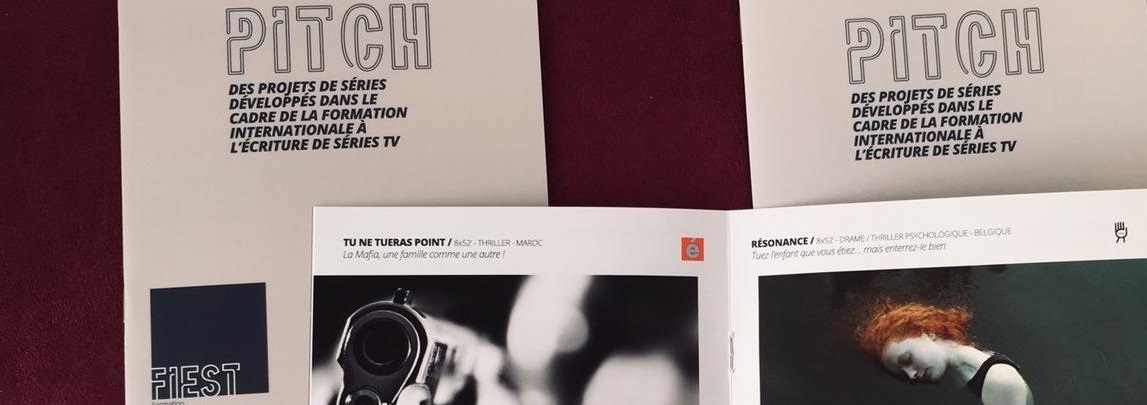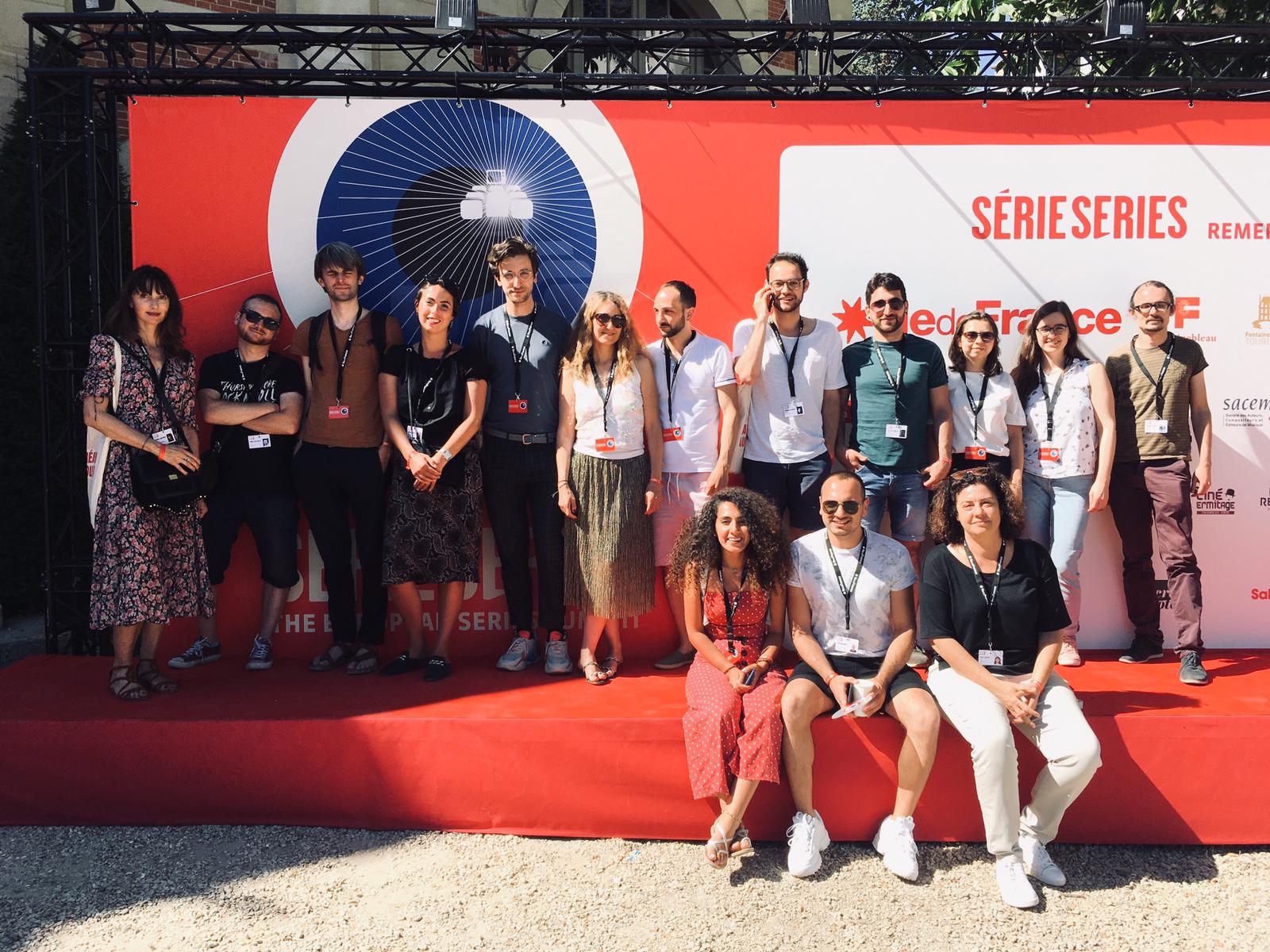In November 2019, the FIEST - International training in TV series writing project achieved its activities and started to assess these two years of work and cooperation.
Under COPEAM coordination, the strategic and inter-sector partnership of the project, funded by the European Erasmus+ Programme, has designed an innovative curriculum and set up a pilot training for 30 students (6 for each partner school) in the field of TV series writing, a growing sector that requires specific professional skills and working methods.
The consortium faced a number of challenges at different levels: first, the transnational nature of the action required a close collaboration between schools from several countries, responding to different educational systems and internal functioning. On this basis, the project has been able to make these Institutes converge on a common ground in terms of established training objectives, study plan, criteria for the selection and evaluation of students, recruitment of teachers, timetable and key learning steps: a complex exercise of exchanges, mutualisation, negotiation, definition of solutions capable to combine the respect of the specificities of each one with the need of shared frameworks and processes.
Secondly, with the ultimate aim of preparing students to the professional challenges proper to series writers’ job, theoretical training has been deeply integrated by the practical exercise of creation and writing of original series projects. This process was structured into 3 stages: concept, bible and pilot episode of an original series. Throughout the pilot training (November 2018 - June 2019), students from each school worked as a team to develop their ideas, being the ability to work together in a writing room a crucial aspect of the profession. From their side, the designated teachers have supervised this work, while keeping a balance between their support and the creative autonomy of the young authors. Opportunities for exchange and discussion between students from the involved schools were also offered to promote peer-to-peer analysis of the ongoing projects. The result of this collective writing effort is the conception of 8 new series projects, co-authored by the 30 students benefiting from the training. Some of these projects are on the way of further developments that may lead to their concrete production.

This process was enriched by another essential component of FIEST: the will to favour the direct relationship between the professionals of the sector (TV fiction directors, (co)producers, distributors, etc.) and the young series screenwriters, in order to allow them to get used and closer – already at the training stage – to this job’s constraints and perspectives. Such prospect was pursued from the beginning thanks to the very fruitful partnership with France Télévisions: the concepts and the bibles of the series developed during the training were evaluated by Anne Didier, Deputy Director of fiction, who expressed critical advises and highlighted strengths and weaknesses of each project, thus providing students with valuable elements for the improvement or completion of their projects. In addition, some meetings were held during the Journées Cinématographiques de Carthage, in Tunisia, and the Série Series Festival in Fontainebleau, France, where a pitch session was attended by a group of FIEST students and many professionals.
Finally, the training also included an online module, developed with Uninettuno Distance University. Ten theoretical video lessons were produced, in addition to 15 TV series case-studies from 5 countries (Italy, France, Tunisia, Lebanon, Morocco). After acquiring the necessary tools for the use of the e-learning platform, the students were able to exploit this didactic space, to follow the video courses, to complete their exercises.
The project follow-up was explored by all partners together during the final meeting of the Pedagogical Committee, held at the ESAV/Marrakech in October.
Some of the schools concerned will integrate this new training into their offer, relying on the strong links established between the partner organizations to ensure FIEST’s international dimension sustainability.
Other opportunities for collaboration are being explored, notably in the direction of a closer cooperation between the training and the audiovisual media sectors, waiting to watch on our screens more and more creative TV series able to portray the complexity of our Euro-Mediterranean societies.
Partners: COPEAM, ALBA (Académie Libanaise des Beaux-Arts - Université de Balamand/Lebanon), ESAC (Ecole Supérieure de l’Audiovisuel et du Cinéma/Tunisia), ESAV (Ecole Supérieure des Arts Visuels de Marrakech/Morocco), ENSAV (Ecole Nationale Supérieure d'Audiovisuel – Université Toulouse II/France), INSAS (Institut National Supérieur des Arts du Spectacle et des Techniques de Diffusion/Belgium), E-learning University UNINETTUNO (Italy), France Télévisions.
Funding: Erasmus+ EU Programme

